The dream of being your own boss is calling, and for thousands of entrepreneurs across the UK, a food truck represents the perfect way to take control of their career and earnings. The street food industry is booming, with more people than ever choosing to ditch the 9-to-5 grind in favour of serving up delicious food from their own mobile kitchen.
But here’s the thing – knowing exactly how much you’ll need to invest before taking the plunge can feel like trying to solve a puzzle with half the pieces missing. The costs can vary wildly depending on your location, cuisine type, and business goals. That’s why we’ve put together this comprehensive guide to help make things a little more clear.
Whether you’re considering a food truck in Milton Keynes or anywhere else across the country, understanding the true cost of entry is crucial for your success. And here’s some good news: those looking to invest in a food truck can actually save money and seriously reduce their risk by joining The Rub BBQ’s proven franchise model. With an investment level of around £50-60k and franchisees typically seeing a return within 12 months… it’s tempting, isn’t it?
How Much Does A Food Truck Cost In The UK?
The food truck revolution has well and truly taken hold across the UK. The industry has experienced remarkable growth in recent years, with entrepreneurs drawn in by the relatively low barriers to entry compared to traditional restaurants.
While our previous article ‘How To Start A Food Truck‘ covers the broader aspects of launching your street food venture, this guide focuses entirely on the financial side of things. We know that money matters, and getting your budget right from the start is absolutely essential. So, here’s what we’re going to cover:
- Food Truck Cost Considerations
- Cost Of Food In The UK
- Food Truck License And Permits
- How To Cut Costs
- How To Boost Profits
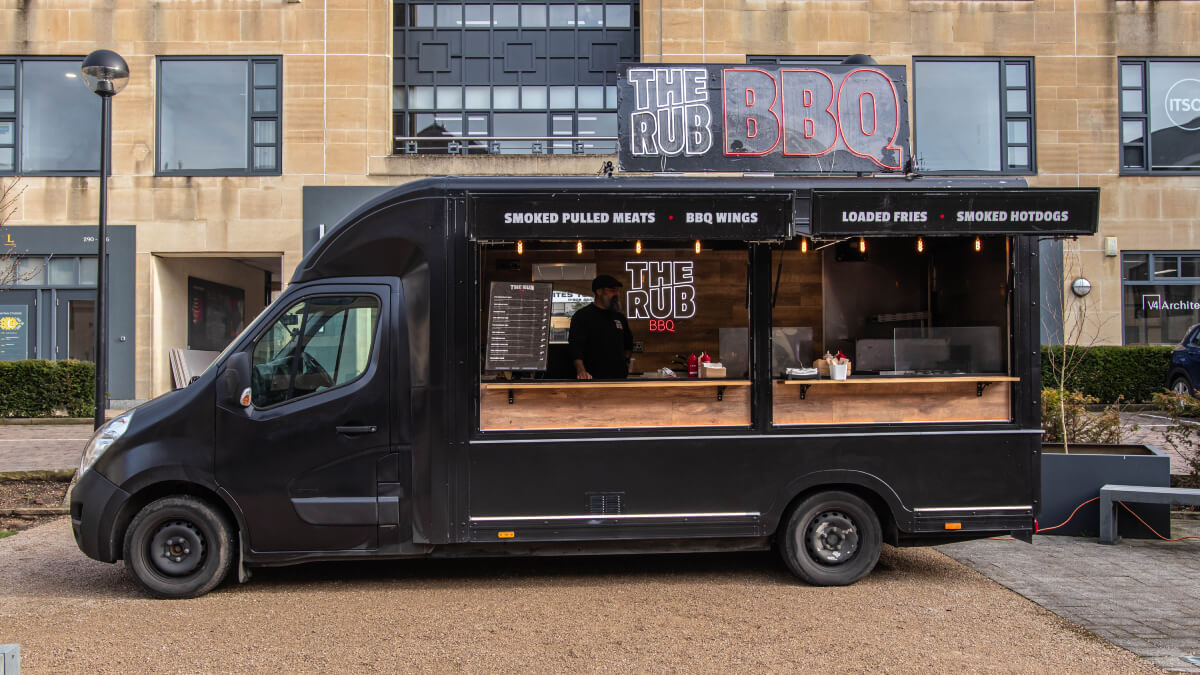
Food Truck Cost Considerations
Starting a food truck isn’t just about buying a van and filling it with food – there’s quite a bit more to consider when you’re weighing up your investment. Understanding all the moving parts will help you create a realistic budget and avoid any nasty surprises down the road.
Here’s what you’ll need to factor into your startup costs:
The truck itself is obviously your biggest expense. A brand-new, fully-equipped food truck can set you back anywhere from £40,000 to £100,000 or more, depending on size and specifications. However, many people start with converted vans or second-hand trucks, which can reduce this cost significantly.
Licences, permits and certificates are essential for legal operation. You’ll need various permits depending on your location and the type of food you’re serving. These costs can add up quickly, but they’re absolutely non-negotiable if you want to trade legally.
Startup food inventory varies massively depending on your cuisine type. Some operators might need just a few hundred pounds worth of ingredients to get started, while others serving premium or speciality items could need several thousand pounds of initial stock.
Serveware includes everything from plates and cutlery to napkins and takeaway containers. It might seem like a small expense, but quality serveware that reflects your brand can make a real difference to customer perception.
Fuel and maintenance are ongoing costs that many new operators underestimate. Food trucks are heavy vehicles that go through a lot of wear and tear, so factor in regular servicing, repairs, and higher fuel consumption compared to a standard van.
Insurance is another must-have expense. You’ll need commercial vehicle insurance, public liability cover, and potentially product liability insurance too. Shop around for quotes, as prices can vary significantly between providers.
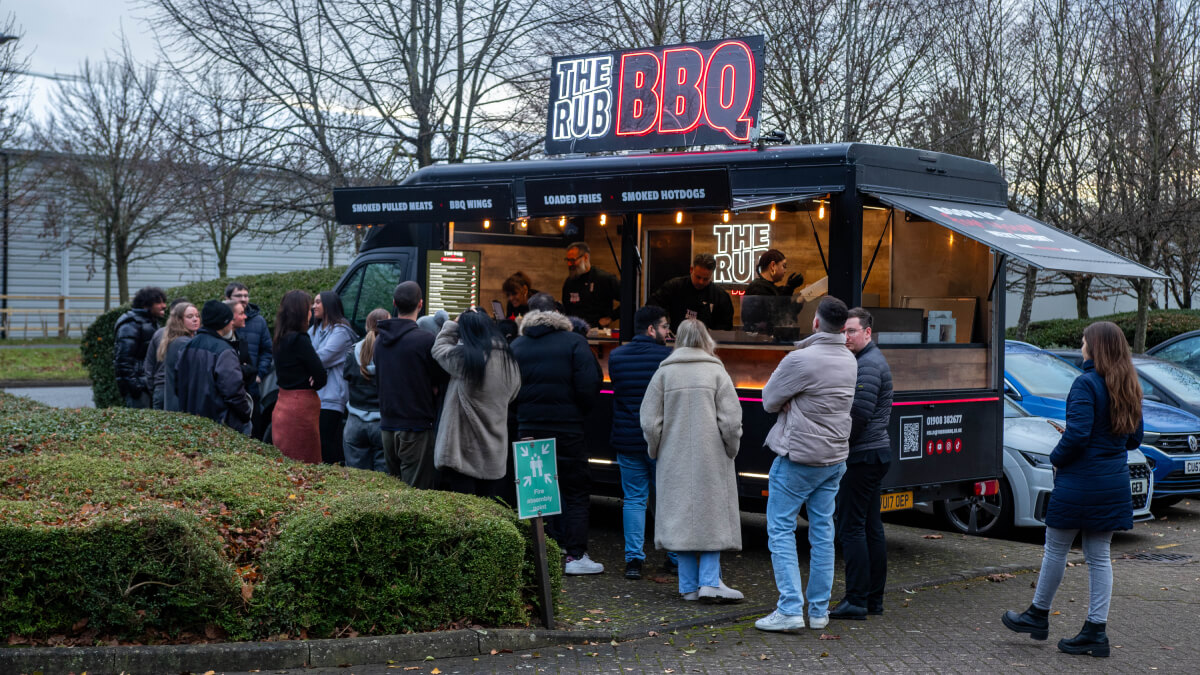
Cost Of Food In The UK
Anyone who’s done a weekly shop recently knows that food costs in the UK have been on quite the rollercoaster ride. Inflation, supply chain disruptions, and global events have all contributed to fluctuating prices that can make budgeting feel like hitting a moving target.
Understanding your ingredient costs is crucial for setting profitable menu prices. Generally speaking, some cuisines are naturally more cost-effective to operate than others.
Budget-friendly cuisines typically include items like jacket potatoes, basic sandwiches, and simple hot food options. These dishes often have lower ingredient costs and simpler preparation requirements, making them excellent choices for new operators watching their pennies.
Mid-range options might include burgers, wraps, and ethnic cuisines that use readily available ingredients. These offer a good balance between cost control and menu appeal, often allowing for decent profit margins whilst keeping customer prices reasonable.
Premium cuisines, such as gourmet offerings, specialty dietary options, or dishes requiring expensive ingredients, will naturally cost more to produce. However, they can also command higher selling prices, potentially leading to better profit margins if executed well.
As a rough guide, successful food truck operators typically aim to keep their food costs between 25-35% of their selling price. So, if you’re selling a burger for £8, your ingredient costs should ideally be around £2-£2.80. Of course, this varies by location, competition, and positioning, but it’s a useful starting point for your calculations.
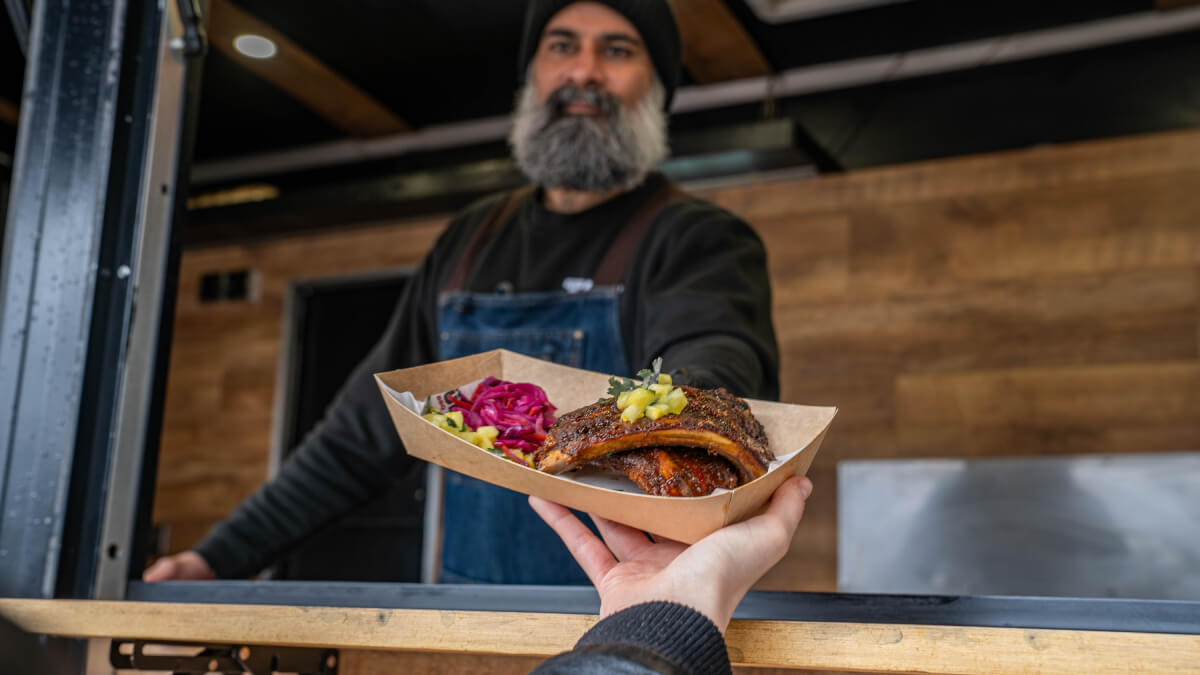
Food Truck License And Permits
Operating a food truck legally in the UK requires several permits and licences, each with its own associated costs. While the paperwork might seem daunting, getting everything sorted properly from the start will save you headaches (and potentially hefty fines) later on.
- Food Hygiene Rating: Registration is free, but you’ll need to demonstrate compliance with food safety standards. Many operators invest in food hygiene training courses, which typically cost between £15-£50 per person.
- Street Trading Licence: Costs vary significantly by local authority. Some councils charge as little as £100 per year, while others might charge several hundred pounds. Popular locations like central London can cost significantly more.
- Premises Registration: This is usually free with your local council, but it’s a legal requirement for any food business.
- Gas Safety Certificate: This is needed if you’re using gas equipment and typically costs around £150-£300, depending on your setup.
- Electrical Safety Certificate: This is required for electrical installations and usually costs between £100-£200.
- Vehicle MOT and licensing: Includes standard vehicle MOT plus any additional requirements for commercial vehicles, typically costing £50-£100 annually.
- Public Liability Insurance: While this isn’t technically a permit, it’s often required by event organisers and pitch providers. Costs vary but expect to pay several hundred pounds annually for adequate coverage.
The total cost for permits and licences can range from £500 to several thousand pounds, depending on your location and business setup. It’s worth contacting your local council early in the planning process to understand exactly what you’ll need.
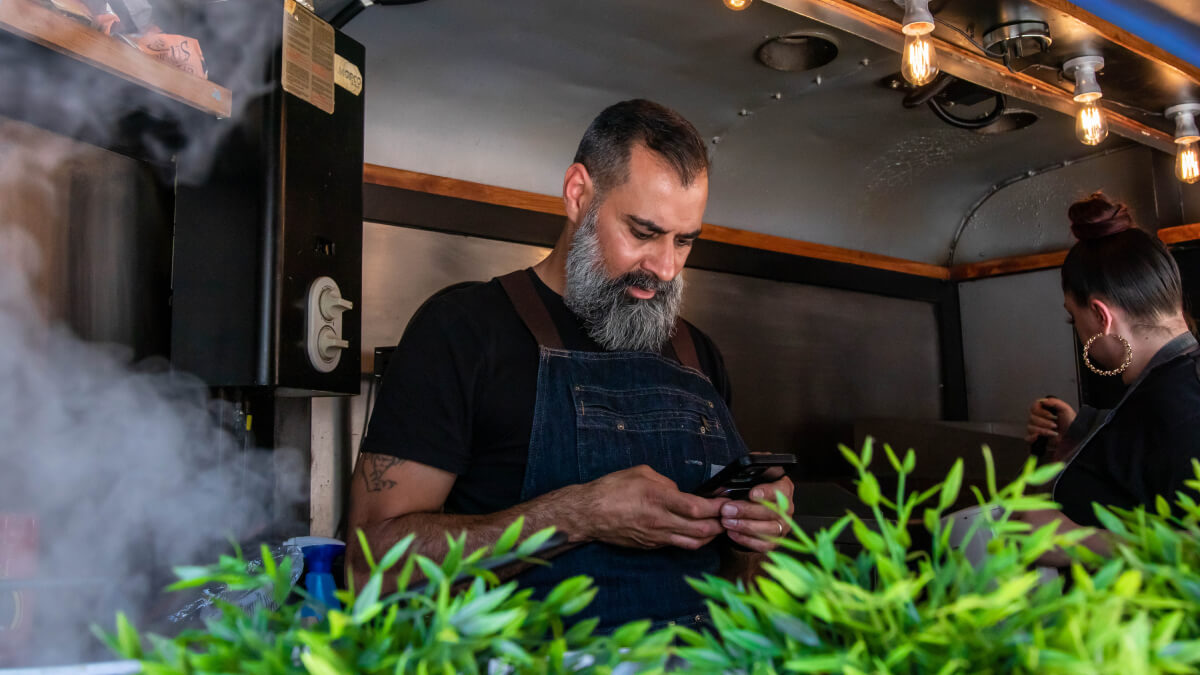
How To Cut Costs
Starting a food truck doesn’t have to break the bank if you’re smart about where and how you spend your money. Here are some proven strategies to keep your startup costs under control whilst still setting yourself up for success.
Buy Second Hand
Buying used equipment and vehicles can offer massive savings. Many successful food truck operators start with converted vans or pre-owned catering equipment. Just make sure everything meets safety standards and get proper inspections before committing to any purchases.
Choose Your Location Wisely
Some areas have much higher permit costs and competition than others. Research different councils’ licensing fees and consider starting in areas with lower costs before expanding to premium locations.
Negotiate With Suppliers
Don’t just accept the first quote you receive. Food suppliers often have flexibility on pricing, especially if you can commit to regular orders or pay promptly. Building good relationships with suppliers can lead to better deals and credit terms.
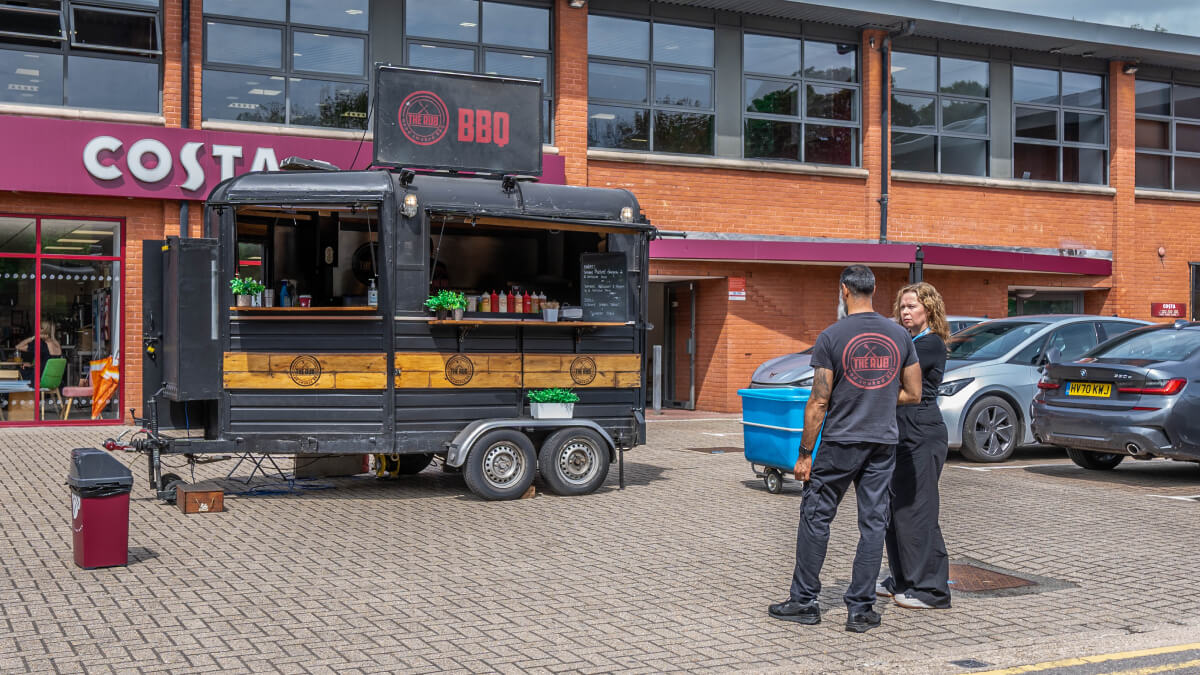
Start Small And Scale Up
Begin with a simpler menu and basic equipment, then reinvest profits into upgrades and expansion. This approach reduces initial costs and allows you to learn the business without massive financial pressure.
Franchise With The Rub BBQ
This is where the real cost savings and risk reduction kick in. Rather than starting from scratch and learning through expensive trial and error, our franchise model provides you with everything you need to succeed for an investment of around £50-60k.
You’ll receive comprehensive 1:1 training delivered by people who actually use our systems, plus ongoing support that includes marketing and social media planning. We’ll even hold your hand through your initial launch event and won’t let go until you’re 100% ready to succeed.
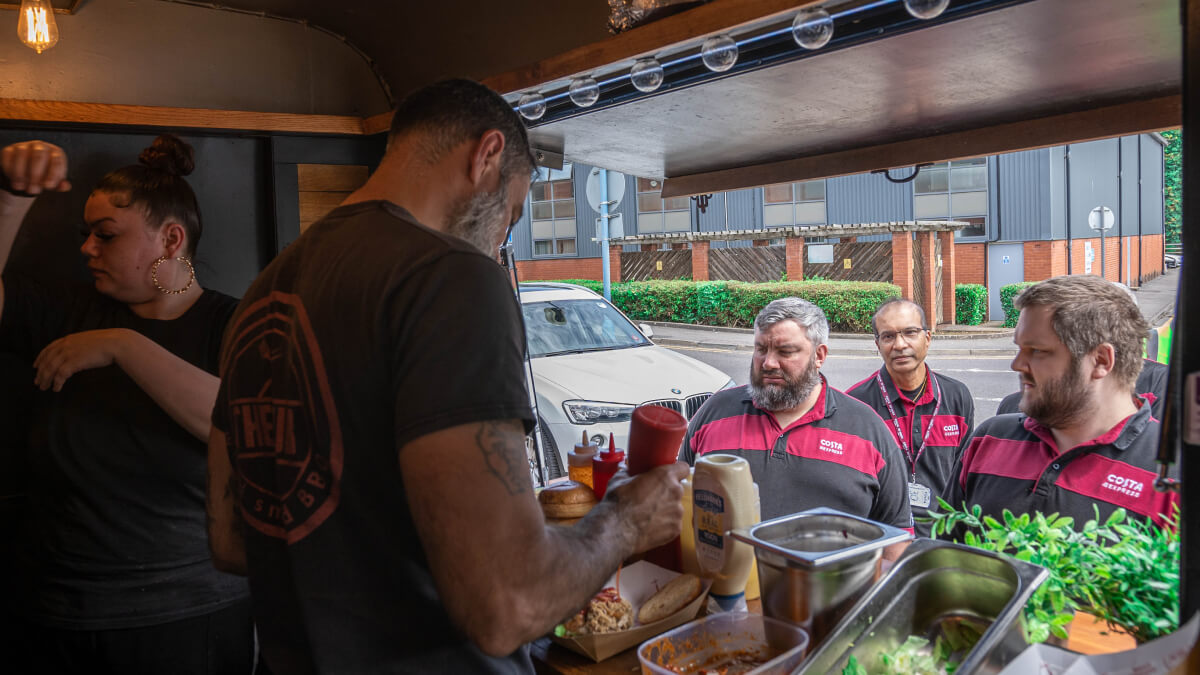
How To Boost Profits
Once you’ve got your costs under control, the next step is maximising your earning potential. The good news is that food trucks, when run properly, can be incredibly profitable businesses with relatively low overheads compared to traditional restaurants. Here are some of our top tips for boosting your profits:
Become A Rub BBQ Franchisee
Our franchise model is designed specifically to boost your profit potential from day one. Our established brand recognition means customers already know and trust our food, dramatically reducing the time and money you’d typically spend building awareness. We anticipate that franchisees who take on one of our opportunities will see a return on their investment within just 12 months.
What sets our franchise apart is the comprehensive support system. You’ll work with our recommended marketing partner who have worked with The Rub BBQ for over five years and have a deep understanding of our brand. They’ll handle everything from setting up your company emails and Google Business Profile to managing launch campaigns that include flyer drops, social media ads, and PR activities.
Your ongoing marketing is covered too – your monthly marketing fee goes towards Google and social media advertising, SEO campaigns, and regular flyer drops, with options to scale up as your business grows.
Prioritise Your Marketing
Go big on marketing because even the best food needs customers to find it. Social media marketing, local advertising, and building relationships with event organisers can dramatically increase your customer base. The great news is that food trucks have a natural advantage here – your mobile kitchen is basically a moving advertisement for your business.
View this post on Instagram
Think Ahead
Book events as far in advance as possible to secure the best locations and dates. Popular festivals, markets, and corporate events often book months ahead, and these premium slots can be your biggest earners. Building a calendar of regular events provides predictable income and helps with cash flow planning.
Create A Community
Build a loyal customer base through consistent quality and excellent service. Regular customers are the backbone of any successful food truck – they provide steady income and often become your best marketing tool through word-of-mouth recommendations.
Figure Out Your Money Makers
Focus on high-margin items that showcase your skills whilst delivering excellent value to customers. Understanding which menu items deliver the best profit margins allows you to guide customers toward these options through smart menu design and staff recommendations.
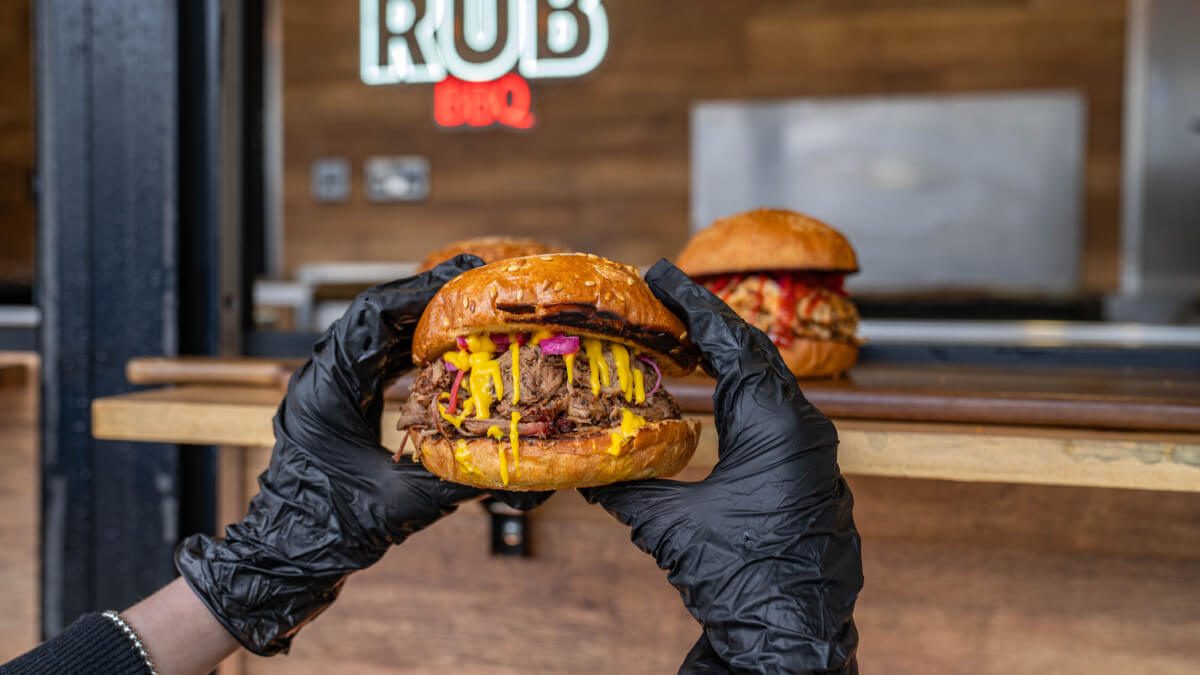
Start A Food Truck With The Rub BBQ
Starting a food truck is an exciting journey, but as we’ve covered in this guide, there are significant costs and considerations to factor in. From the initial vehicle purchase to ongoing permits, food costs, and operational expenses, the financial investment can be substantial – often ranging from £60,000 to £120,000 or more, depending on your ambitions and approach.
However, there’s a smarter way to enter this exciting industry. The Rub BBQ franchise opportunities in the UK offer a proven path to food truck success with an investment level of around £50-60k. What makes this particularly compelling is our track record – franchisees typically see a return on their investment within 12 months, making it one of the most attractive franchise opportunities available.
Whether you’re considering a food truck in Bedford or anywhere else across the country, The Rub BBQ franchise provides everything you need to succeed. We’ve already done the hard work of building brand recognition, developing winning recipes with our locally sourced ingredients and homemade rubs and sauces, and creating operational systems that work.
Ready to learn more? The next step is simple – register your interest to receive a copy of our Franchise Prospectus. One of our team will then call you to discuss this exciting opportunity further and offer you the chance to see one of our operations in action.
